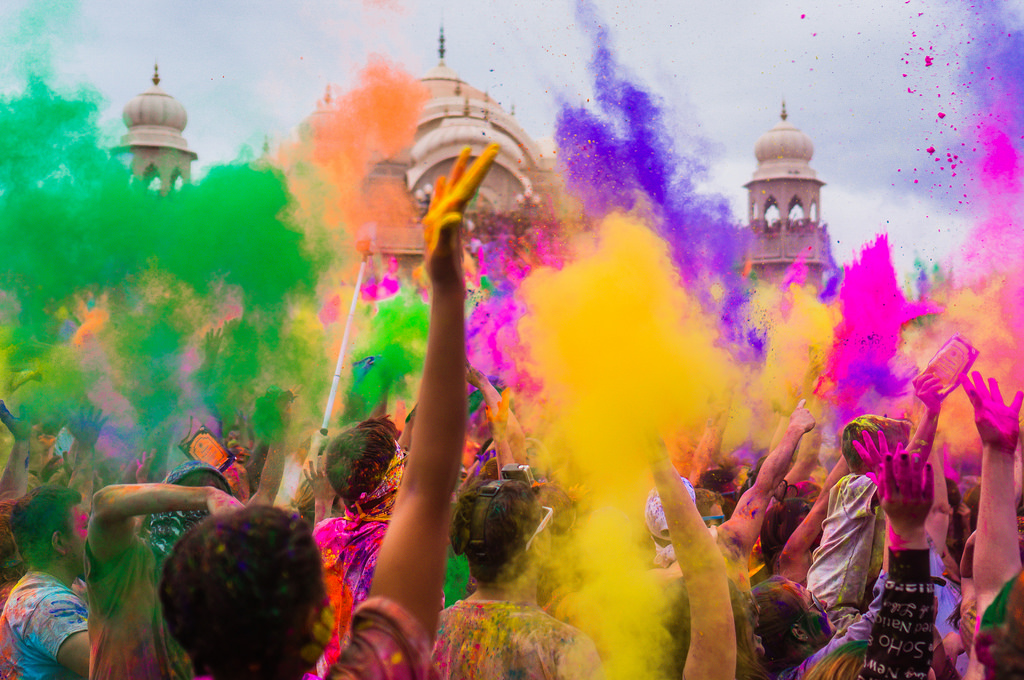Holi
Holi is an ancient spring festival celebrated initially in India but has spread throughout the continent and even through to Europe and the United States. The festival is a celebration of the triumph of good over evil, coming from one of the many symbolic legends of Vishnu. The event tends to take place in late February or early March, and this year it falls on the 1st of March.
The Legend
According to Hinduisms Mahapuranas (the Great Histories or religious texts) a Demon King named Hiranyakashipu had received a blessing which made him near-immortal; he could be killed by neither human nor animal, neither day or night, outdoors or indoors, nor by projectile or handheld weapons, or on land, air, or water. In his invincibility the Demon King grew arrogant and forced all to worship him. However, his own son Prahlada disobeyed him and still worshipped Vishnu, which infuriated Hiranyakashipu and he subjected his son to extreme punishments, none of which weakened Prahlada’s resolve. Finally, the Demon King’s sister Holika (the festivals namesake) wished to trick her nephew into his death; she wore a cloak that was immune to fire and got her nephew to sit on a pyre with her, but as the flames began to rise the cloak flew from her to Prahlada and she burned. In this moment Vishnu appeared as Narasimha – half human half lion– and took to the Demon King at dusk, forced him to his doorstep which was neither indoors nor outdoors, sat Hiranyakashipu on his lap which was neither land, nor air, nor water and ripped him apart with his lion claws, which were neither projectile nor handheld weaponry. Religious persecution was then banished from the land and Prahlada ruled peacefully over it.

Customs and Traditions
Holi is one of the most culturally significant festivals in Hinduism, as it marks the victory of good over evil, a day to forgive oneself and others of past errors and the beginning of spring in India. Preparations begin the night before Holi, in the Holika Dahan, a bonfire to celebrate the burning of Holika and the banishment of evil. The following day features the event that the festival is famous for: Rangwali Holi - the paint fight in which everyone is a possible target, regardless of age, status or gender. The day is generally without prayer or religious ceremony and is purely for fun and enjoyment. Though these two features of Holi are pretty much staples wherever the festival is taking place, other events occur depending on the region such as in Mathura in North India, where the festival last a week rather than two days, and women playfully beat shielded men with sticks after the paint fight.
So, on behalf of Vandu, Happy Holi to all our friends and colleagues!
At Vandu we provide interpreters and translations for many of India’s languages, such as Urdu, Punjabi, Bengali, Hindi and Tamil. Please call 01273 473986 or email info@vlslanguages.com for more information.
